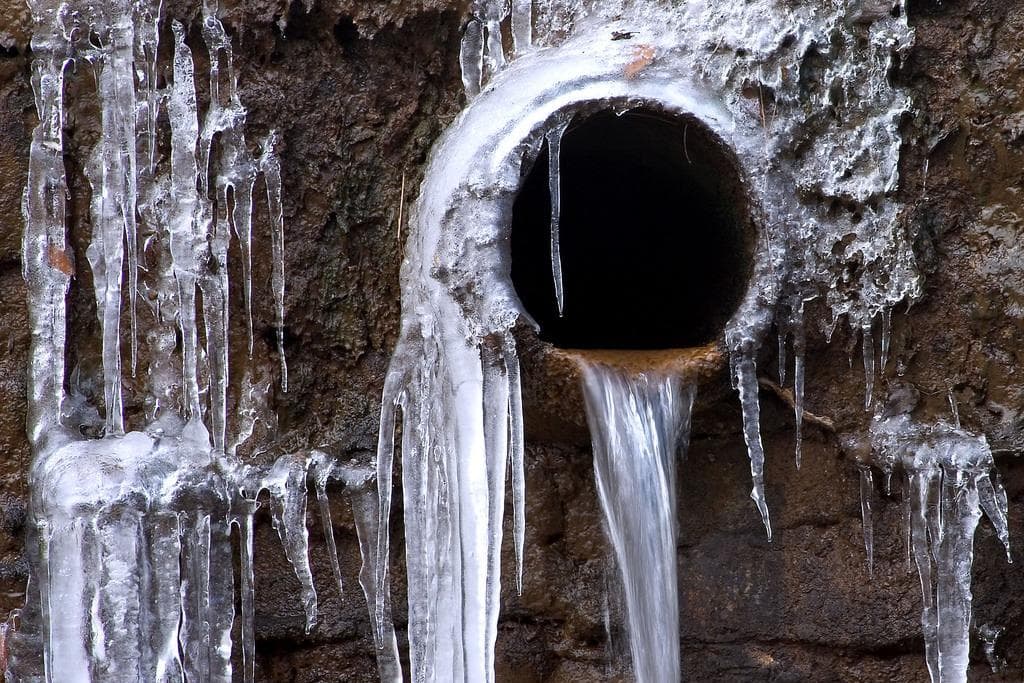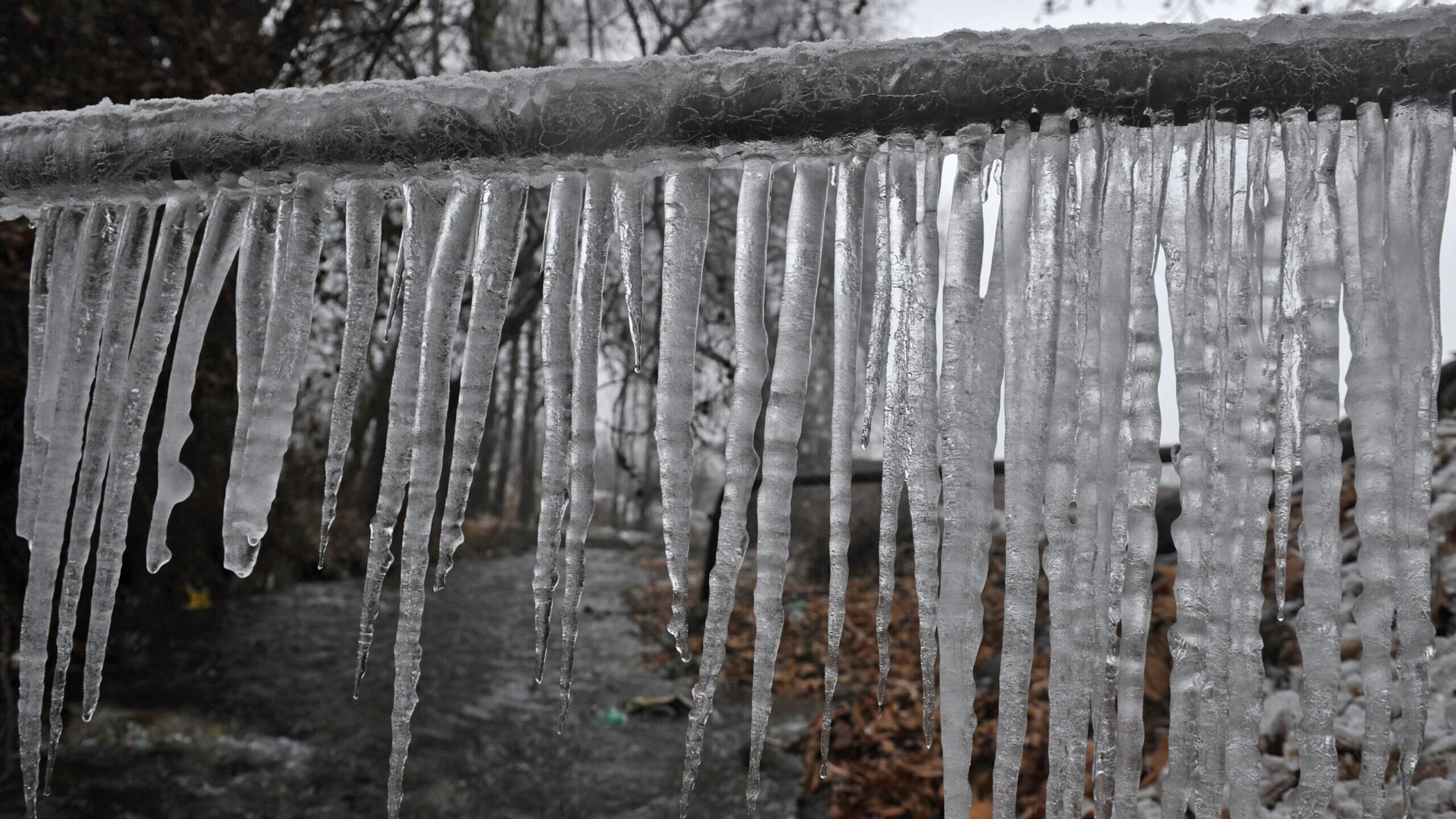Tips for Preventing Frozen Plumbing in Cold Weather: Expert Tips
Tips for Preventing Frozen Plumbing in Cold Weather: Expert Tips
Blog Article
Here in the next paragraphs you can discover a bunch of excellent data when it comes to Prevent Frozen Pipes .

Winter can damage your pipes, specifically by freezing pipelines. Below's just how to prevent it from happening and what to do if it does.
Introduction
As temperatures drop, the risk of frozen pipes boosts, potentially causing pricey repair services and water damage. Understanding exactly how to stop icy pipes is essential for house owners in cold environments.
Avoidance Tips
Insulating at risk pipes
Cover pipes in insulation sleeves or utilize warm tape to shield them from freezing temperature levels. Focus on pipes in unheated or exterior areas of the home.
Heating strategies
Maintain indoor rooms properly heated, specifically locations with plumbing. Open up closet doors to permit warm air to flow around pipelines under sinks.
Exactly how to identify frozen pipes
Try to find reduced water flow from faucets, uncommon odors or sounds from pipes, and noticeable frost on exposed pipelines.
Long-Term Solutions
Structural changes
Consider rerouting pipelines far from exterior wall surfaces or unheated areas. Add extra insulation to attic rooms, basements, and crawl spaces.
Upgrading insulation
Invest in top notch insulation for pipes, attics, and wall surfaces. Appropriate insulation assists keep constant temperatures and decreases the danger of frozen pipes.
Shielding Outdoor Plumbing
Garden hoses and outdoor faucets
Separate and drain pipes yard pipes before winter season. Install frost-proof spigots or cover exterior taps with protected caps.
Understanding Icy Pipelines
What triggers pipes to freeze?
Pipelines freeze when exposed to temperature levels below 32 ° F (0 ° C) for expanded periods. As water inside the pipelines freezes, it increases, taxing the pipe walls and possibly creating them to burst.
Threats and damages
Frozen pipelines can result in water supply interruptions, home damages, and costly repair work. Ruptured pipes can flood homes and create substantial structural damages.
Indications of Frozen Water Lines
Recognizing frozen pipelines early can stop them from bursting.
What to Do If Your Pipelines Freeze
Immediate activities to take
If you presume icy pipes, keep taps open to soothe pressure as the ice thaws. Use a hairdryer or towels taken in warm water to thaw pipes gradually.
Verdict
Stopping frozen pipelines requires positive actions and quick actions. By comprehending the causes, indications, and preventive measures, property owners can shield their plumbing throughout winter.
6 Proven Ways to Prevent Frozen Pipes and Protect Your Home
Disconnect and Drain Garden Hoses
Before winter arrives, start by disconnecting your garden hoses and draining any remaining water. Close the shut-off valves that supply outdoor hose bibs and leave the outdoor faucet open to allow any residual water to drain. For extra protection, consider using faucet covers throughout the colder months. It’s also important to drain water from any sprinkler supply lines following the manufacturer’s directions.
Insulate Exposed Pipes
Insulating your pipes is an effective way to prevent freezing. Pipe insulation is readily available at home improvement stores and is relatively inexpensive. Pay close attention to pipes in unheated areas such as the attic, basement, crawl spaces, or garage. Apply foam insulation generously to create a buffer against the cold. You can also wrap your pipes in heat tape or thermostat-controlled heat cables for added warmth.
Seal Air Leaks
Inspect your home for any cracks or openings that could let in cold air. Seal any holes around the piping in interior or exterior walls, as well as the sill plates where your home rests on its foundation. Additionally, make sure to keep your garage door closed unless you’re entering or exiting. Leaving it open creates a significant air leak that can lead to frozen pipes.
Allow Warm Air Circulation
During cold snaps, it’s essential to allow warm air to circulate evenly throughout your home. Leave interior doors ajar to promote better airflow. Open kitchen and bathroom cabinets to help distribute heat consistently around the rooms. If you have small children or pets, be sure to remove any household chemicals or potentially harmful cleaners from open cabinets for safety.
Let Faucets Drip
A small trickle of water can make a big difference in preventing ice formation inside your pipes. When temperatures drop significantly, start a drip of water from all faucets served by exposed pipes. This continuous flow helps prevent the water from freezing. Additionally, running a few faucets slightly can relieve pressure inside the pipes, reducing the chances of a rupture if the water inside does freeze.
https://choateshvac.com/6-proven-ways-to-prevent-frozen-pipes-and-protect-your-home/

We had been made aware of that article about Helpful Tips to Prevent Frozen Pipes this Winter through a buddy on our other website. In case you appreciated our post plz consider to share it. Thanks for going through it.
Book With Us Today! Report this page